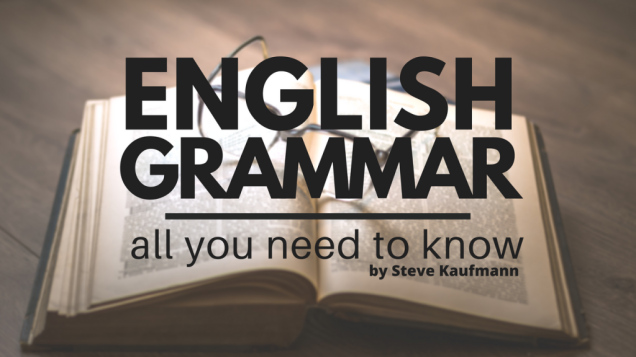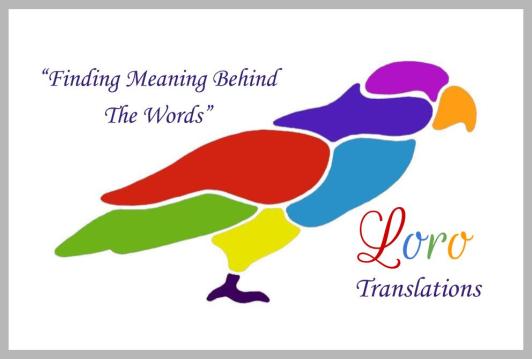11SEPTEMBER2016 The Linguist
English Grammar – All You Need to Know

Most of us can’t remember the rules of English grammar, much less apply them correctly when speaking. As Stephen Krashen, the great explainer of language acquisition, has demonstrated, the continued and massive input of meaningful content is the key to success in language learning.
In order to speak English well you need to learn how words are used and how they come together to form phrases and sentences. Only a lot of listening and reading can help you learn this. You need to train yourself to notice how the words are used when you listen and read. You need to master the natural phrases of English in a natural way.
There are, however, a few grammatical terms that we need in order to notice what is happening in most languages. I describe these below for the English language. I find that the more complicated the English grammar explanations or grammar terms are, the less I am able to understand and remember. So in my language learning I prefer to keep it simple.
So here’s all the English grammar you need to get you going.
Nouns refer to persons and things, like a “car”, a “tree” or a “house”. Most nouns do not stand alone. Normally an article (the, an, a) or some other word like “his”, “her” “many”, “both” or “some” will come before the noun. Only if the noun is a general term like beauty, love, money, or honour etc. can it stand alone.
Pronouns are words like “he”, “she”, “it” “his”, “her” or “which” and “that”, which stand in place of nouns. When you use a pronoun instead of a noun, you must make sure that it is obvious which noun you are referring to. If it is not clear, you must use the noun again.
Adjectives describe nouns. They may describe the colour, size, degree or any other quality of the noun. You will notice that many adjectives end in “-ate”. “-able” “-ive” -“ing” or “-ed”. Nouns often change into adjectives by adding the letter “y”, like “anger”- “angry”, “thirst” – “thirsty” “fun” – “funny” etc. Sometimes an adjective can change into a noun by adding a “y” as in “difficult” – “difficulty”. You just have to observe the language and save the words and phrases you want to learn.
Prepositions are small words that indicate place, direction and time, such as “ in”, “at”, “on”, “by”, “beside”, “before”, “after” etc.
Verbs describe actions: “run”, “talk”, “sit”, “listen” etc. The form of the verb can change depending on when it happened (tense), who did it (person), and a few other factors. Watch carefully for these word forms. Some verbs combine with prepositions and have a special meaning. “Get in”, “get by”, “get with” are just some examples. These verbs are called phrasal verbs because the phrase is a verb.
Adverbs describe verbs, adjectives and other adverbs. Adverbs often end in “-ly”. Nouns, verbs and adjectives can become adverbs by adding “-ly”. Watch for the different forms of similar looking words.
* * *
We group our words and phrases in sentences which are more complete thoughts. In English, a sentence must have a verb. It is usually wise to keep sentences short and clear.
Sentences will often contain logical relationships either internally or connecting them to other sentences. These connecting or relationship words are very important and need to be learned. Words such as “because”, “even though”, “if”,”since”, “more than”, better than”, ‘as much as” and many more need to be learned.
It is also useful to have some good connecter words to introduce your thoughts and ideas. You can introduce your ideas with phrases like, “in fact”, “on the other hand”, “nevertheless”, “however” or simply “and” or “but” etc.
Choosing the right word
Work hardest on knowing how words are used. This is more important than grammar rules. The form of a word will change depending on whether the word is a noun, verb, adjective or adverb, singular or plural, and for other reasons. “Enjoy” is a verb, “enjoyment” is a noun. “Act” is a verb, “action” a noun, “active” an adjective and “actively” is an adverb. Notice these differences as you read, listen and save words and phrases.
Many words look similar but have different meanings and are used differently. You have to get used to this by listening, reading and reviewing your saved words and phrases. You need to become observant of the language in order to improve your English grammar or grammar in any language.
Wrong word form and wrong choice of words are the most common errors committed by non-native speakers. Become observant of the language and improve your word choice. LingQ helps you do this. Each time you save a word you automatically save the context. Soon your English grammar will improve and you will get better at noticing which words usually go together, in which form and in what order.
